How can this tent of knives be destroyed ?! / Discovery of hijab according to Reza Khan’s wife
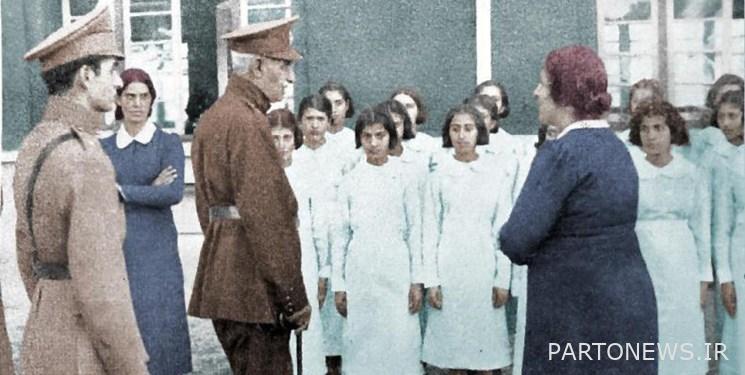
Life Group; Zeinab Nadali: It is enough to put a tent in front of your grandmother’s eyes once and go out in peace, then with tears in their eyes they will tell you stories that may be hard and intangible for you to believe. Narrations of the persecution of veiled women who, due to Reza Khan’s short-sightedness and thoughtless imitation and logic, had to be forced out of their tents and such a commodity was offered to society. Although Reza Khan enacted the law on the discovery of hijab in the name of freedom, this freedom led to a crime against women such as housekeeping, abortion, torture and flogging, and finally martyrdom! On the 17th of January, we turned the pages of history and brought you a part of the story of the discovery of the hijab and its secrets and margins.
Reza Khan considered the tent an enemy of progress and development!
“How can this tent of knives be destroyed ?!” This issue has been on my mind for almost two years, especially since I went to Turkey and saw their wives throwing away their veils and hijabs and helping them side by side with their men in the affairs of the country. They say, I hate everything a woman in a chador is. Basically, tents and chaqchur are the enemy of people’s progress and development. “He has just found the verdict of a heart that should be carefully pricked and removed from sight.”
This is the text of a letter that Reza Khan wrote to “Prime Minister” Mahmoud Jam a year after his visit to Turkey, asking him to think of a way to remove the veil from Iranian women. Reza Khan has always insisted that the Iranian people should become the face and tradition of the West. At various ceremonies, he called on members of the cabinet to take the lead in imitating Western traditions, wearing shapoo hats, and removing the hijab from their wives. Of course, the issue of removing the hijab became public when Reza Shah traveled to Turkey and saw Ataturk’s policies on the issue of women’s hijab and Turkey’s progress. Reza Shah thought that the progress of this country depended on the removal of tents and veils. That is why, a year after his visit to Turkey, he ordered Prime Minister Mahmoud Jam to draft a law on the discovery of the hijab, which, although enacted in the name of women’s liberation, was followed by the bloodshed of hundreds of innocent women. Wearing hijab was shed and a group of Iranian women were housed.
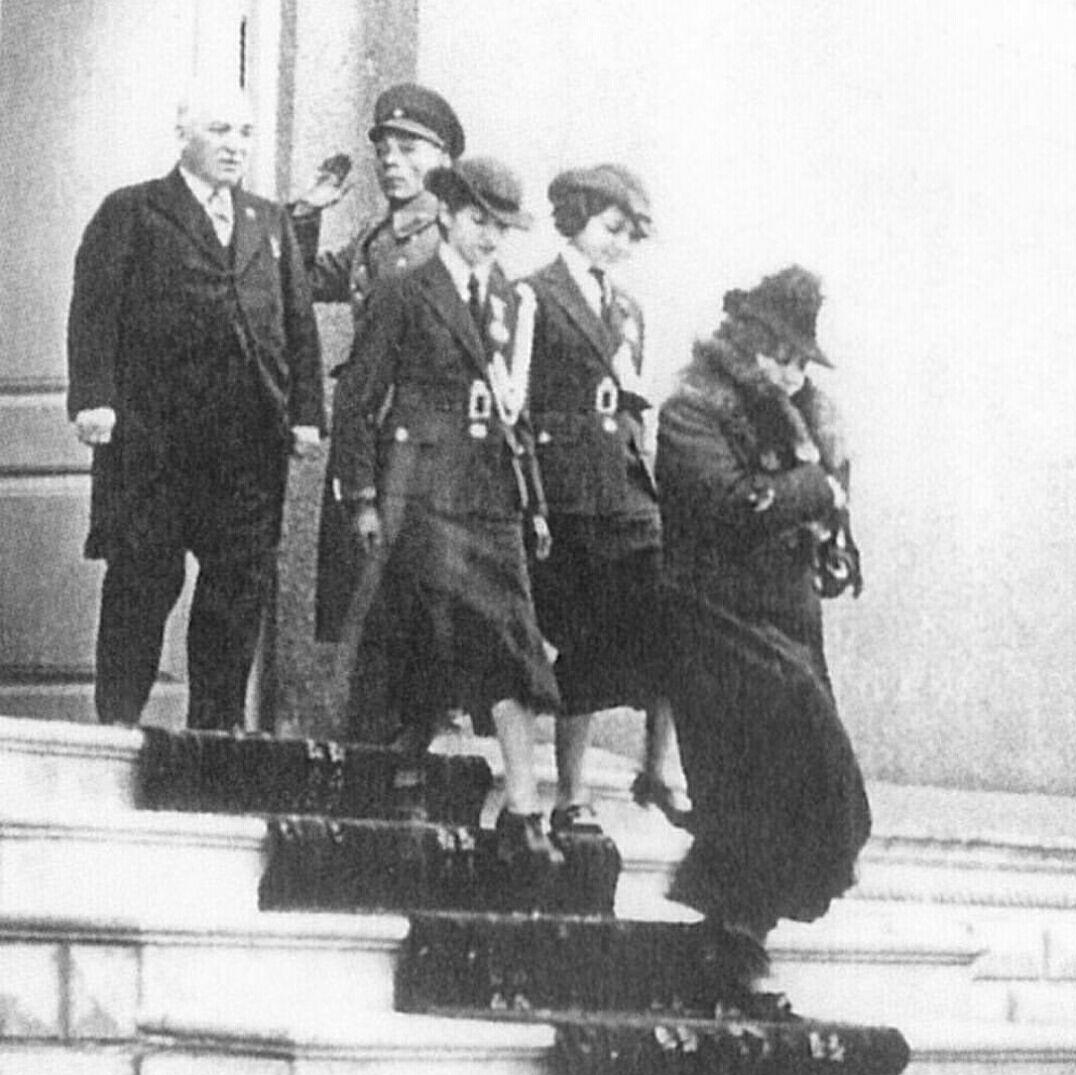
Reza Khan’s wife and daughters, who appeared in public for the first time on January 8, without hijab
January 6, the day that Reza Shah removed the hijab from his family!
Eventually, the law on the discovery of the hijab was sent to the court for approval, and at Mahmoud Jam’s suggestion, its implementation began from within. He told Reza Shah: Be present at the celebration. “We will also order all women ministers and dignitaries to attend this celebration without hijab.”
Reza Shah accepts this plan and it is decided that it will be discussed and approved by the cabinet. “The participation of my wife and daughters in the opening ceremony of the elementary school should be an example for all Iranian women and girls, especially your wives and ministers,” she said at the cabinet meeting. This may cause a lot of noise and controversy at first, but it’s something that needs to be done anyway. With hotchpotch and dry prejudices, we can not hold back the caravan of the country’s progress. The woman must be freed from this black tent! »
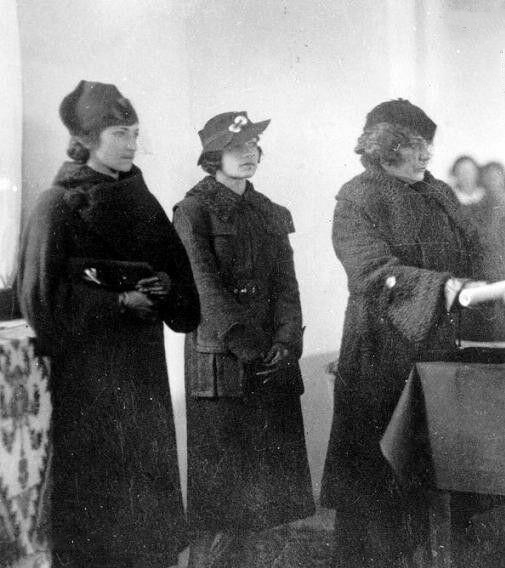
Ashraf, Shams and Taj al-Muluk on the day of the discovery of hijab
The promised day is coming. On January 8, 1963, Reza Shah entered the elementary school with his wife, Shams, and Ashraf Pahlavi, who for the first time took off their hijab and appeared in the community in a new Western form. For the first time, women ministers also attended the inauguration of the Preparatory School without cover.
After distributing the graduates’ awards, Reza Shah gave a speech. In part, she said: “I am extremely pleased to see that women, as a result of their knowledge, have become aware of their situation and have realized their rights and benefits … You ladies, consider this a great day and an opportunity. Use what you have for the progress of the country! You, my sisters and daughters, will be the educators of future generations, and you are the ones who can be good teachers and good people from under you! »
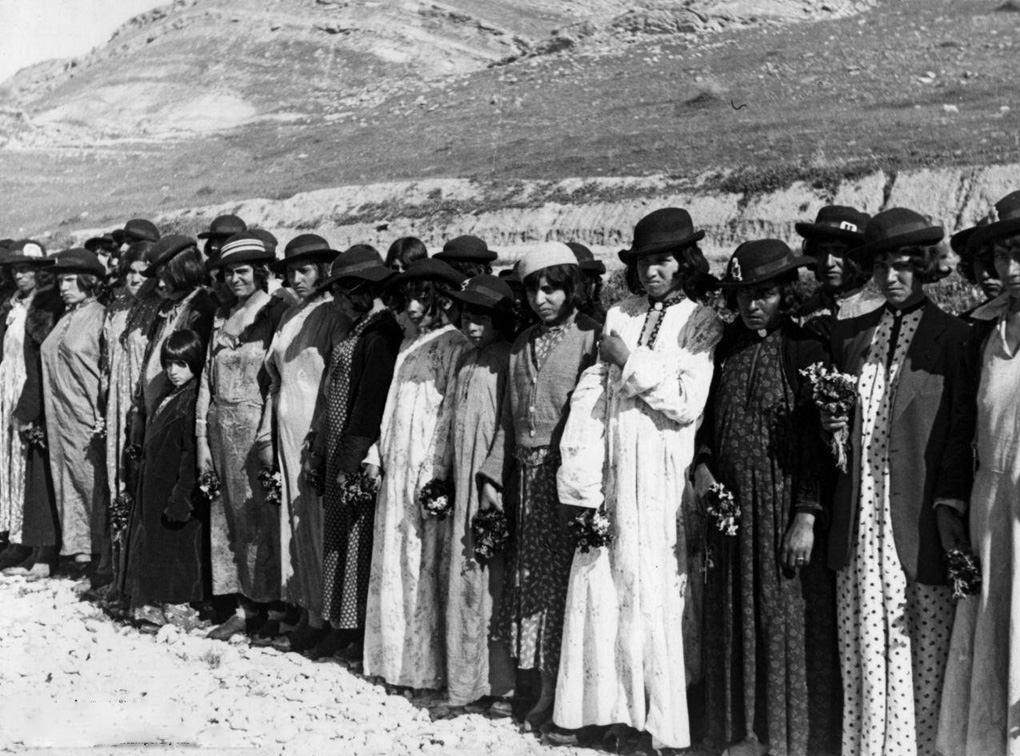
Nomadic women who had to replace their local clothing with Western clothing
How government officials treat veiled women
After this date, living conditions became very difficult for women who were not willing to wear it and accept the social burden. Veiled women even struggled to do their personal chores, such as bathing, let alone social activities and advancement! Women with hijabs were not allowed on the bus. Government offices did not allow veiled women to enter. The policemen beat and insulted the women who wore the hijab, even if they wore a headscarf. He was chased to his house. They did not stop there, searching the women’s rooms and their lockers, and if they saw any tents, they tore them up or looted them.
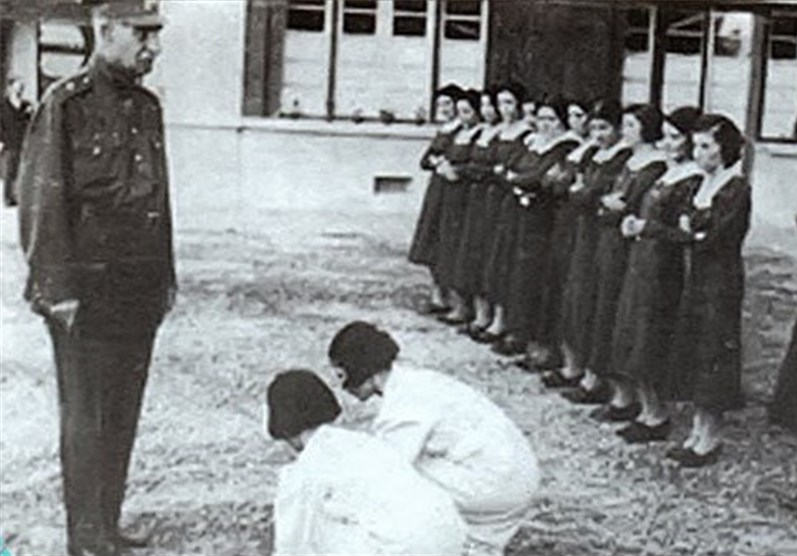
Parvin Bahmanpour, a historian, wrote in describing those days: “From this date on, the use of hijab was banned throughout the country. The implementation of this law in religious cities such as Qom, Kashan, Mashhad, etc. faced problems. Women who dared to oppose the law were beaten by police officers and sometimes summoned to the police station with their husbands. Security officers had the right to pull off a tent and tear it off if they saw a woman wearing a hijab in the street. The Ministry of Education was instructed that from now on, not all students and teachers have the right to wear the hijab. Some of the girls dropped out of school and settled down. “All government departments were also obliged to prevent veiled women from entering.”
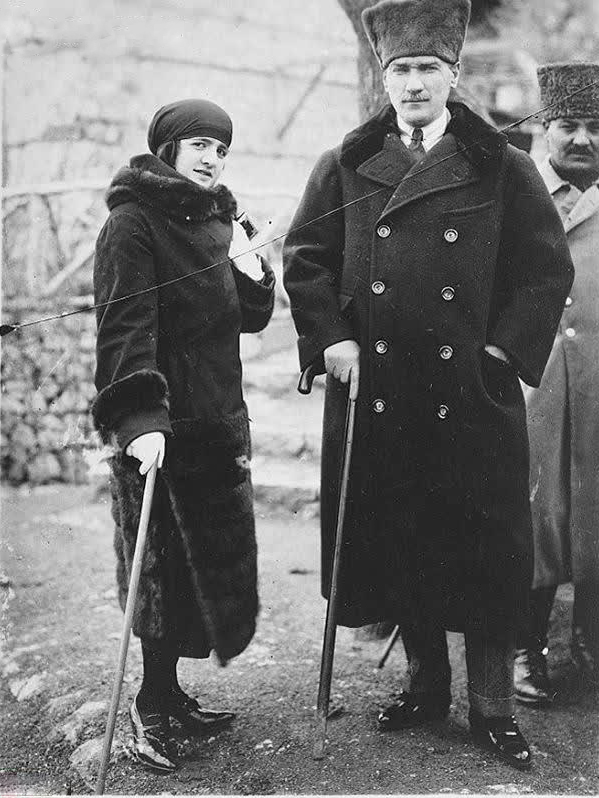
Ataturk’s wife, Reza Khan imitated the law banning hijab; He had a hijab.
Even wearing long clothes was forbidden!
Following these actions by government officials, many women chose to stay at home forever. Some of them were martyred because of the severity of the torture they had witnessed, and others thought of a solution. Women who both adhered to hijab and chastity and did not want to stay away from their social activities or at least be able to do their personal work adopted a different type of cover. They wore long clothes and wore hats and scarves to maintain their hijab in such a way that they both observed their hijab and avoided government officials. However, these actions were also countered by women in a letter. “And it should be prevented.”
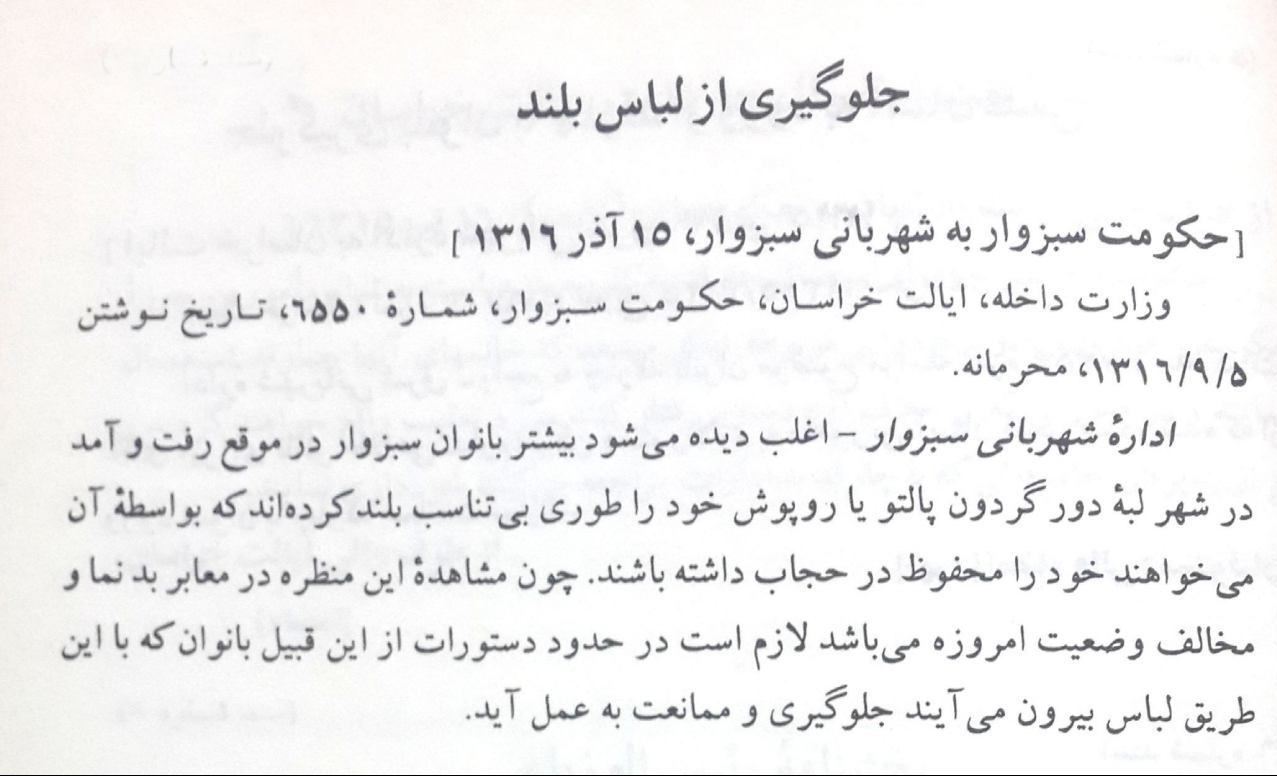
Letter text prevent wearing long clothes
Veiled women and their confrontation with the king
One of the historical evidences of women confronting the tyranny of Reza Khan’s authoritarian government is a letter written by women in Yazd to members of parliament. They narrated the oppression of government officials as follows: “Unfortunately, what is heard on the radio and read in the newspapers is not the name of the oppression that has befallen us for many years, even through a headscarf or a prayer tent in the neighborhoods. From the neighbor’s house, he was under so much pressure from the police and police officers, and we still see that God did not and does not bother with obscenities, beatings and kicks, and if the wise men were free to acknowledge, the statistics would show how pregnant a woman she was. Or the sick died due to the grievances and injuries inflicted on them by the police, and how paralyzed they were by fear and greed, and how much they looted our property in the name of a headscarf or a prayer tent, and how much money was taken from us by name and form. . God knows that if one of the Mahas fell into the hands of a constable with a headscarf or a prayer tent, they would treat them like the captives of Sham. “Their best treatment of Maha was kicking our boots in the heart, and if they were not satisfied with taking the money or we did not have the money to give it to them, they would take us to the police and the commissar.”
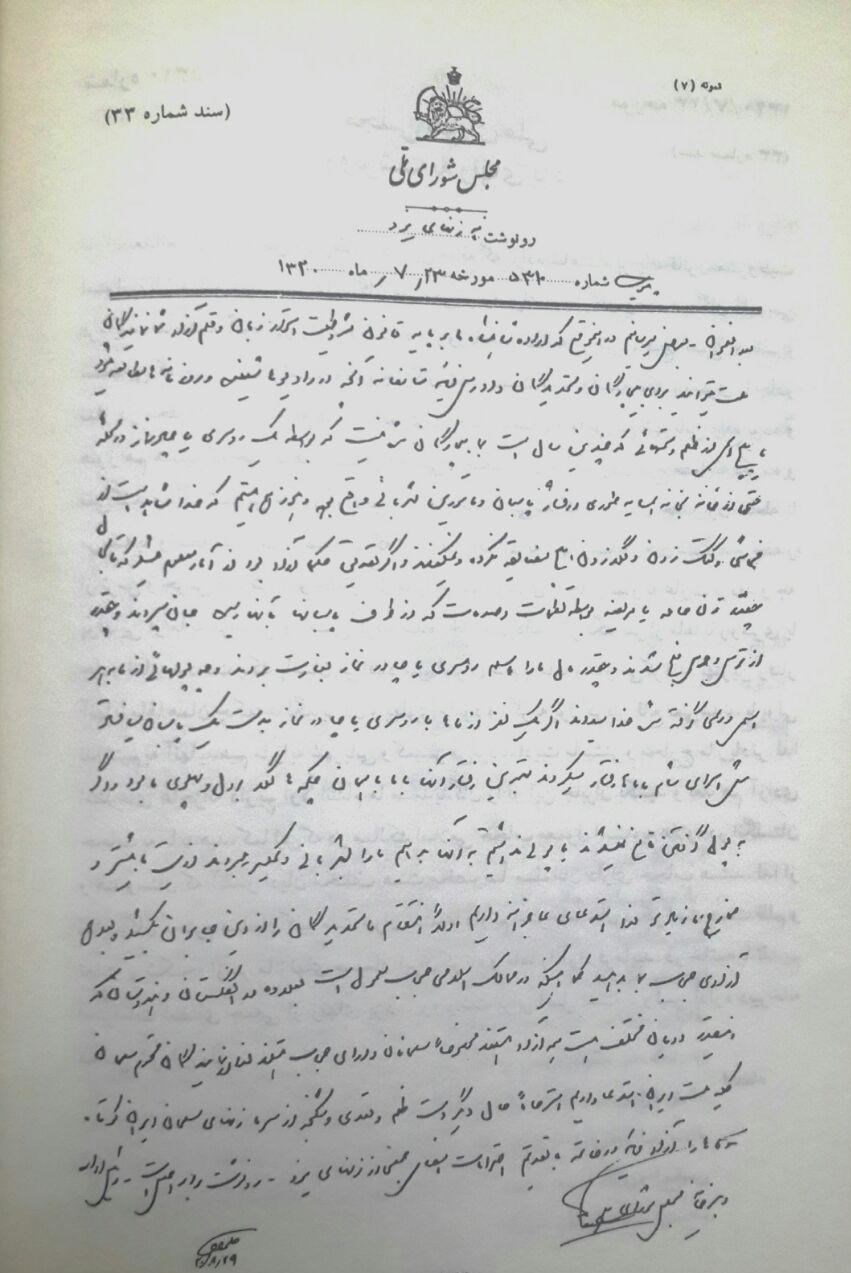
Yazd women letter to MPs
Discovery of hijab according to Reza Khan’s wife
Esmat al-Muluk Dolatshahi, Reza Shah’s third wife, says of the discovery of the hijab: “At that time, all classes of people adhered to certain moral principles. Women roamed the streets less. It was not a question of a chador, and most women in those days wore a chaqchur, which was a kind of veil. In such circumstances, it was suddenly ordered to remove the hijab by force and the exercise of power. For this reason, he faced a strong reaction from the people. I remember we were embarrassed to see passers-by, even when we were sitting in the car without the hijab. This issue did not belong to a specific class and the general public was suffering from this order without studying it. In those days, Reza Shah had ordered that we should all be unveiled. This was a very difficult task at first; We were embarrassed and very upset. We used to wear a hat and a leather coat with a long collar. We tried to be less visible, so we often went out of town. I remember in those days I used to go to the garden of Hesam al-Saltanah in Akbarabad so that I would not have to be unveiled in public. “Because we did not have the authority of our own, we had to obey the order.”
The infallibility of kings
The wife of one of the politicians died because of the discovery of the forced hijab!
Among the wives of nobles and rulers, there were a few women who did not agree with the discovery of the hijab. The wife of Mukhbar al-Saltanah and the wife of Sadr al-Ashraf, the Minister of Justice of Reza Shah, had nothing to do with the discovery of the hijab. Sadr al-Ashraf’s wife became so ill that she did not leave the house until she was forced to attend the hijab-discovery ceremony as a host, and she died a year later, and her body was taken out of the house.
Sadr al-Ashraf narrates the story of the discovery of the hijab and the death of his wife in his memoirs as follows: Let their wives attend the celebration. First, this was done in the Ministry of War, and the Shah himself attended the celebration, the wives of the officers of Toa and the deaf were present, and the other ministers began. As soon as one or two ministries celebrated, one day the king told the cabinet to provide a means for me to attend with my daughters without hijab.
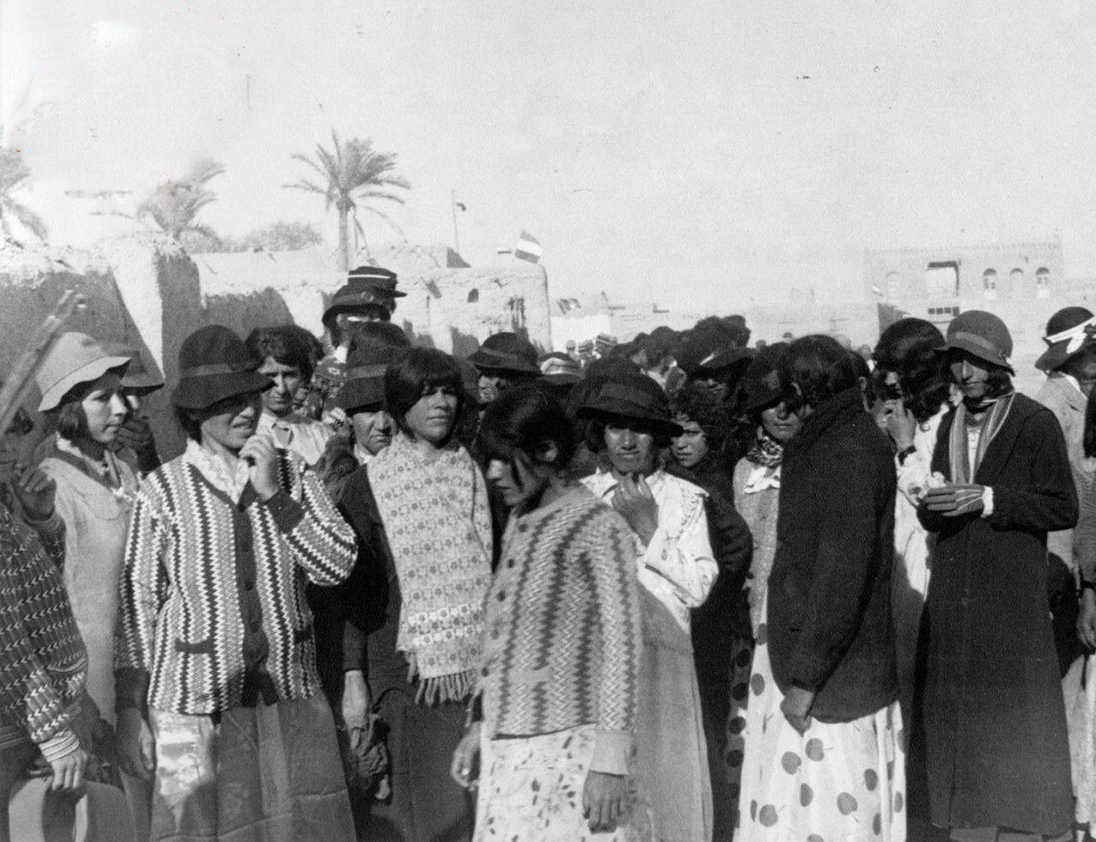
Women of the south
Minister of Culture Hekmat said that it was appropriate for the Shah to attend the celebration of the distribution of diplomas in girls’ schools. The king liked it and was scheduled to attend the celebration, saying that ministers, deputies and general managers should be present with their wives. This was a big problem for me because my wife was not present at all. He even told me to divorce me and forgive him.
I sent a message to the king through Shokooh al-Mulk, the head of the special office, that my wife was ill and could not move.
This stage also passed. A few days later, the Shah told me when it would be time to celebrate at the Ministry of Justice. I said that the population of members of the judiciary is large and there are two types: some are administrative members and some are judges, among whom are scholars and old men. Shah said it is not appropriate and the work should be started from the difficult point so that others can take their work into account.
I was forced to provide a meeting in a large Iranian club and invite them, but there was a state of mourning in my house. “But after returning from there, my wife fell ill and did not leave the house until she died a year later and her body was taken out …”
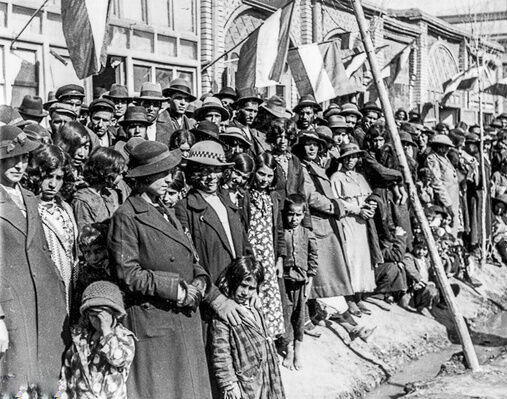
Hijab Discovery Celebration
End of message /
You can edit this post
Suggest this for the front page
.


